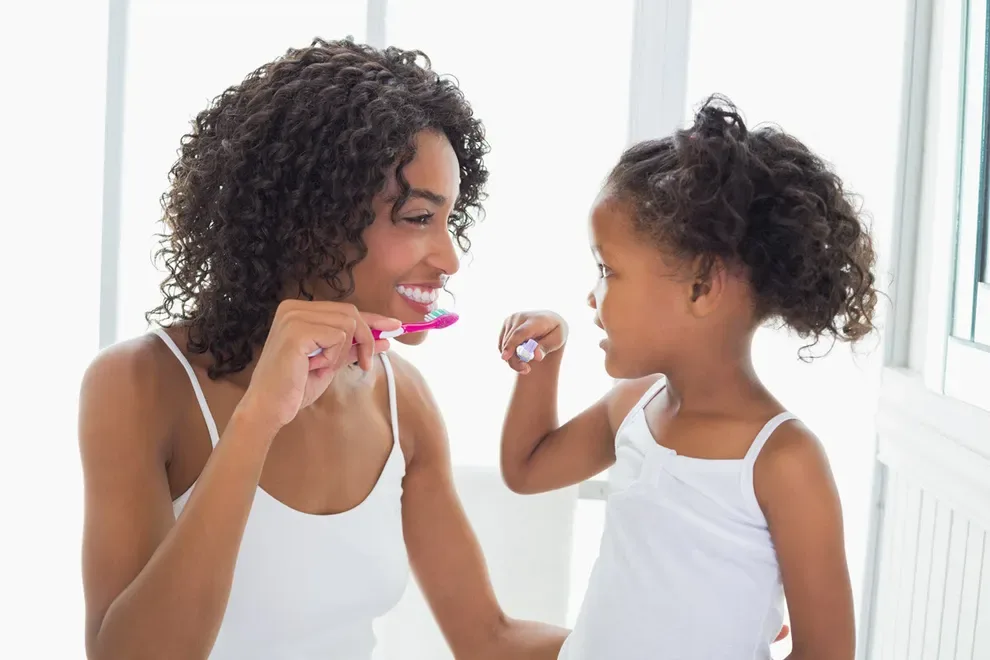When Do Kids Lose Their Baby Teeth and Other Dental Milestones to Know

Table of Contents
- When Do Baby Teeth Fall Out?
- Other Major Dental Milestones
- What If They Lose Teeth Too Early or Late?
- Does Dental Hygiene Matter for Baby Teeth?
- Proper Dental Care for Your Child
- References
Most children lose their baby teeth between 6 and 12 years of age. As this happens, the teeth are gradually replaced with permanent versions. Most will have a full set of 32 permanent teeth (including wisdom teeth) by age 21.
Your child’s baby teeth may be temporary, but it’s important to care for them while your child has them. Losing baby teeth too early can cause permanent teeth to drift out of alignment, affecting their adult smile. Brushing, flossing and attending regular dental appointments helps keep your child’s early teeth healthy until their permanent teeth are ready to appear.
When Baby Teeth Fall Out
Most kids lose baby teeth at specific points during their development. For instance:
At 6 to 7 years old, your child's central incisors (the two long, thin teeth in the center of their smile) fall out.
At 7 to 8 years old, lateral incisors (the teeth on either end of the central incisors) fall out.
Between 9 and 11 years old, your child will shed canine teeth (the pointy, fang-like ones next to the lateral incisors) and the first molars. Lower teeth tend to come out before upper ones do, although this is not always the case.
Between 10 and 12 years old, your child's second molars will fall out. Once again, the lower teeth are likely to come out before the top ones.
Major Dental Milestones
Lost baby teeth are not the only dental milestones to watch for in children. Here are a few other events to be aware of that can impact your child’s behavior as they grow up.
For most infants, teething begins around three months. When it starts, your baby may drool a lot, experience tender or swollen gums and act more fussy and irritable than usual. New teeth will continue to appear, one by one, until they reach about 33 months of age.
Around 6, permanent teeth will start to come in. Permanent first molars usually erupt at the back of the mouth before any baby teeth fall out, although permanent central incisors sometimes show up first if there is room for them.
Most children lose all their baby teeth by age 12 or 13. By then, a full set of permanent teeth up to the second molars should be in.
The final four permanent teeth, called the third molars, or wisdom teeth, erupt several years later, usually between the ages of 17 and 21.
What Happens If My Child Loses a Tooth Too Early or Too Late?
All baby teeth are supposed to fall out, but losing them too early or too late can cause problems with permanent teeth.
When a dentist has to remove a child’s baby tooth early because of an injury or tooth decay, it leaves a space that likely won’t be filled for a number of years. The gap may cause permanent teeth to drift out of alignment and become crooked or twisted.
Similarly, retaining a baby tooth for too long can cause other issues. The reason: the permanent tooth that should have erupted and pushed the baby tooth out never developed. It can also happen because to dental trauma, tooth of gum infection or impacted teeth.
Baby teeth are not as strong as permanent teeth. They are smaller, and they wear down more quickly. Even if they aren’t pushed out by permanent teeth, they rarely last as lifetime like permanent teeth do.
If your child retains one or more baby teeth beyond the typical age when they would usually lose them, consult a dentist about the problem. Dental professionals can advise you about potential replacement options you can use when your child's baby tooth is finally removed.
Does Dental Hygiene Matter for Baby Teeth?
Dental hygiene is just as important for baby teeth as it is for permanent teeth. Even though baby teeth will eventually fall out, they are still attached to your child’s body in the meantime. If they get infected, any infection can spread to your child’s bloodstream. Such a condition is extremely dangerous and could even kill your child.
To prevent this from happening, dentists will remove any severely decayed baby teeth. However, an early removal may cause the child's permanent teeth to drift into the open spaces left behind.
Maintaining sound oral hygiene helps keep your child's early teeth clean and cavity-free, allowing them to stay in place until they’re ready to fall out naturally. If decay does develop, a dentist can drill and fill it just as they would do for a permanent tooth.
Proper Dental Care for Your Child
Teaching your child to care for their baby teeth is a good way to teach them about oral health, setting up habits that will last them a lifetime. To do this, you should:
Get your child used to brushing their teeth at least twice a day. Depending on the age of your children, you may need to supervise this process or even help them with it.
Help your child clean between their teeth at least once per day using dental floss or interdental brushes.
Educate your child about how their diet and eating habits can harm their teeth. Feed them a healthy, balanced diet and limit the number of snacks they receive between meals.
Bring your child for regular dental checkups every 6 months or as instructed by your dentist.
